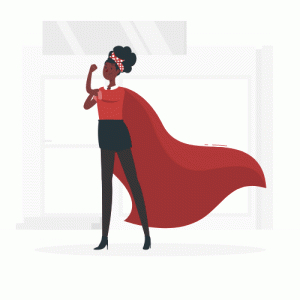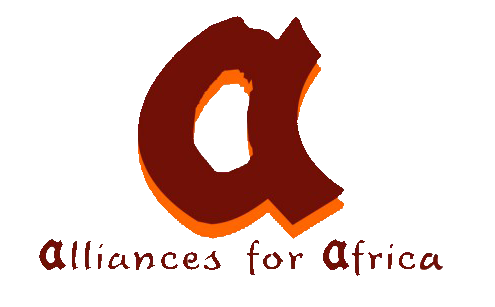IT’S A NEW DAWN FOR WOMEN’S RIGHT IN AFRICA
The prevalence of sexual and gender based violence (SGBV) against women and girls in Nigeria and Africa generally, has long ceased to be nouveau in global history. The growing concern in Nigeria most especially, is the inability or unwillingness of law enforcement agencies to investigate and prosecute these human rights violations, which has led to the heightened perpetuation of such crimes.
The inability or unwillingness of the State to act, violates the due diligence principle that the responsibility to protect women from violence resides in the States themselves. It also means that the State is not being held accountable for violations committed against half of its population – women and girls more so where this inhuman treatment is perpetrated by security agents charged with responsibility of maintaining law and order in the society.
A plethora of victims of SGBV if not all, live in psychological pain of non-recompense for the violations of their fundamental human rights. The knowledge that the perpetrators still walk the streets as free men further kills victims’ desire to seek help for themselves. The relevant question is; what more appropriate help can be offered these victims other than punishing their perpetrators, offering monetary compensation and rehabilitating the victims? Statistics has proven that the surest heal for victims of sexual and gender base violence is the reparation of their perpetrators, knowing that the perpetrator is punished heals the malaise the crime bears on women and girls.
Despite this pervading menace, we are content to announce that the 12th of October, 2017 saw the advocacy for the protection of the fundamental human rights of women and girls in Africa take a new turn as the Community Court of Justice of the Economic Community of West African States (ECOWAS) gave judgement in favour of Dorothy Chioma Njemanze, Edu Ene Okoro, Justina Etim and Amarachi Jessyforth in the case of Dorothy Njemanze & 3 Ors v. Federal Republic of Nigeria in suit no: ECW/CJ/APP/17/14 .
It was a case of gender based violence against Dorothy Chioma Njemanze, Edu Ene Okoro, Justina Etim and Amarachi Jessyforth by agents of the Abuja Environmental Protection Board (AEPB), the Nigerian Police and the Nigerian Military.
The heightened level of violent, cruel, inhumane, degrading, discriminatory and unlawful treatment suffered in the hands of the abovementioned purported law enforcement agents in Abuja by these women instigated the suit.The young women were abducted and assaulted verbally, physical and sexually, threatened and unlawfully detained at different intervals between January 2011 and March 2013 by the aforementioned agents of Nigerian Government simply because they were seen outside at night on the streets of Abuja. The women were termed prostitutes while men who were so situate was not harassed. Prior to the institution of the suit in the court, the 1st plaintiff,Dorothy Chioma Njemanze, exhausted all avenues reaching out to government instituted offices, ministries and organizations; in a desperate attempt to obtain justice for herself and other victims but received no positive support whatsoever.
However, the case was filed since the 17th of September, 2014 on the intervention of Alliances for Africa (AFA) being an organisation keen on protection and promotion of women’s right and support from Institute for Human Rights and Development in Africa, Nigerian Women Trust Fund and the law firm of S.P.A Ajibade SAN. All was made possible with funding from Open Society Initiative for West Africa (OSIWA), an altruistic Organization.
On the 12th of October, 2017, after surviving several adjournments, the case was decided. The ECOWAS court sitting in Abuja held inter alia, that;
1. The multiple violation of fundamental rights of the plaintiffs through arbitrary arrest, the inhumane and cruel treatment and unlawful detention at different times by the agents of Nigerian Government, offends the provisions of the Protocol to the African Charter on Women and Peoples Rights on the Right of Women in Africa.
2. The degrading and humiliating verbal assault on the plaintiffs; calling them prostitutes repeatedly without proof; amounts to gender based violence as the men were not harassed during the said raid at night.
3. The 1st, 3rd and 4th plaintiffs are each entitled to monetary compensation to the tune of 6,000,000.00 (Six Million Naira only).
Alliances for Africa is delighted by this land mark decision that not only promotes gender justice in Africa but has motivated the African woman to seek redress for the violation of her human rights; being the first ever pronouncement of a Regional Court of Law on women’s human rights using the Protocol to the African Charter on Women and Peoples Rights on the Right of Women in Africa (MAPUTO PROTOCOL) essentially Articles 2,3,4,5,8 and 25 and Articles 5 &6 of African Charter on Human and Peoples’ Rights (ACHPR).
Let the Nigeria and other West African States be put on notice hence, that we will fight every act of violation of the fundamental human rights of women and girls, we will prosecute and justice is assured. The era of unspoken victimization has been blown away by the wind of the ECOWAS court judgement of 12th October and we now ride on the wings of this new era to determine freedom from sexual and gender based violations in Africa! It is hoped that this decision will generate change in government policy and practice with regard to the gender-based violence and gender-based discrimination across
Africa.
Chetachi Louis-Udeh,
Legal Programs Officer( Gender Justice Project)
Alliances for Africa
Email:chetachi@alliancesforafrica
Twitter:@chetalouis
+234 7039068960.

